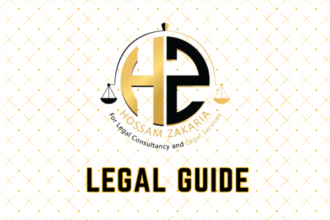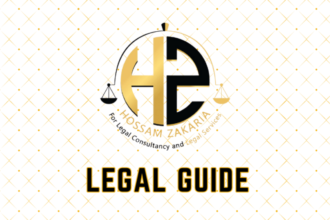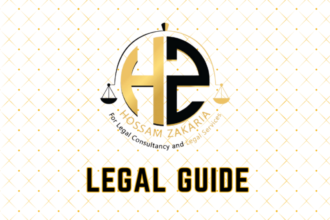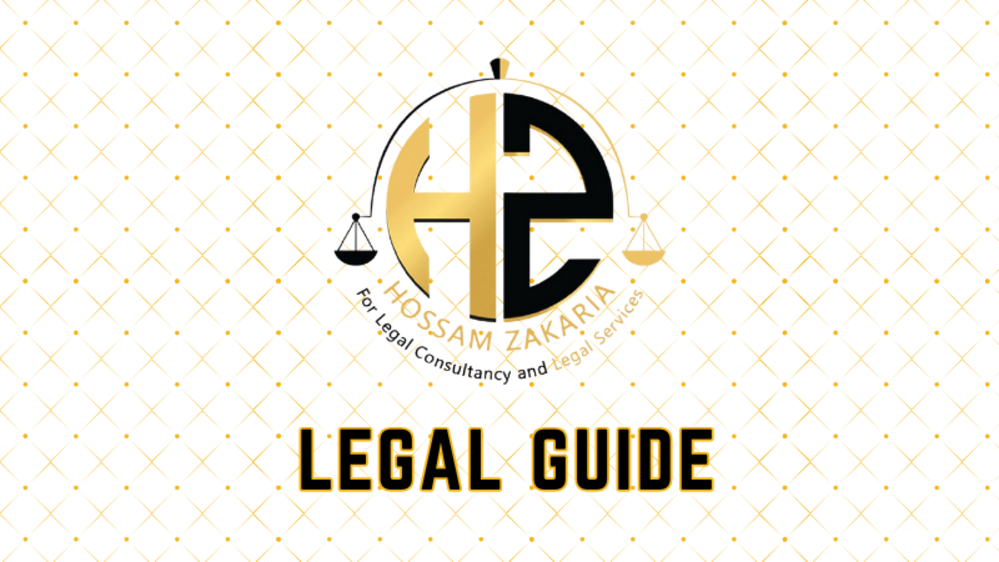Expert Strategies for Successfully Dissolving or Liquidating Companies in the UAE
The dynamic evolution of the United Arab Emirates (UAE) commercial landscape has necessitated a robust and transparent legal framework for the dissolution and liquidation of companies. Recent updates, such as Federal Decree-Law No. 32 of 2021 on Commercial Companies (“Companies Law”), and related Cabinet Resolutions, have introduced significant procedural enhancements to safeguard stakeholders, promote economic stability, and align with international best practices. For business owners, corporate executives, legal counsel, and HR managers, understanding these changes is critical for seamless exits, risk mitigation, and full legal compliance in the UAE’s rapidly maturing market.
This article provides an in-depth analysis of the regulatory requirements, practical considerations, and forward-looking strategies for company dissolution and liquidation in the UAE. Drawing on official sources such as the UAE Ministry of Justice, Federal Legal Gazette, and the UAE Government Portal, we highlight not just the legal basics but also actionable consultancy advice tailored for the Emirates’ unique legal environment.
Table of Contents
- Regulatory Framework for Company Dissolution in the UAE
- Initiating the Dissolution Process: Key Considerations
- Appointing the Liquidator: Legal Obligations and Practical Insights
- Public Announcements and Creditors’ Rights
- Detailed Steps in UAE Company Liquidation: A Stepwise Guide
- Employee Rights and Labour Law Compliance
- Special Considerations for Free Zone and Offshore Companies
- Comparative Analysis: Old Versus New Laws
- Case Studies: Lessons from Recent Liquidations
- Risks of Non-Compliance and Recommended Safeguards
- Looking Ahead: Implications of the 2025 Updates and Best Practices
- Conclusion: Navigating Change and Building Resilient Exit Strategies
Regulatory Framework for Company Dissolution in the UAE
Understanding Federal Decree-Law No. 32 of 2021 on Commercial Companies
The principal statute governing company dissolution and liquidation in the UAE mainland is Federal Decree-Law No. 32 of 2021 (replacing Federal Law No. 2 of 2015). This law, as published by the Federal Legal Gazette, includes relevant updates for voluntary and compulsory dissolution procedures for Limited Liability Companies (LLCs), Joint Stock Companies, and branches of foreign entities.
The new Companies Law emphasizes transparency, enhanced stakeholder protections, accelerated timelines, and clear creditor priority in liquidation proceeds. Complementary regulations such as Cabinet Resolution No. 58 of 2020 (Ultimate Beneficial Owner Procedures) and Ministerial Decision No. 678 of 2016 (HR and employee settlements) are also relevant for ensuring compliance throughout the process.
Key Legal Provisions
- Articles 308–344, Companies Law: Detailed mechanisms for company dissolution and liquidation, appointment of liquidators, and creditors’ procedures.
- Cabinet Resolution No. 58 of 2020: Addresses the requirement to update and de-register ultimate beneficial owners on dissolution.
- Ministerial Decision No. 678 of 2016: Governs the payment of end-of-service benefits upon company closure.
- UAE Bankruptcy Law (Federal Decree-Law No. 9 of 2016, as amended): Applies if insolvency arises during attempted voluntary liquidation.
These rules are designed to balance business flexibility with creditor, employee, and regulatory interests, reflecting the UAE’s commitment to global commercial standards.
Initiating the Dissolution Process: Key Considerations
Reasons for Dissolution and Liquidation
Companies may initiate dissolution for various reasons, including expiry of term, completion of objective, financial distress, mutual shareholder agreement, or regulatory infractions. Voluntary dissolution is initiated internally by the company’s governing body (shareholders or board), while compulsory dissolution may be ordered by courts or the regulatory authorities.
Practical Insight: Decision-Making Protocol
For voluntary liquidation, a General Assembly Resolution must be passed in accordance with the Articles of Association and Companies Law formalities. The resolution should clearly state the grounds for dissolution, the appointment of a licensed liquidator, and the authority granted to finalize estate matters. An authorized legal consultant should be engaged at this stage to ensure proper drafting, mitigate shareholder disputes, and initiate regulatory notifications.
Appointing the Liquidator: Legal Obligations and Practical Insights
Role and Duties of the Liquidator
A licensed liquidator (typically a UAE-accredited audit or law firm) plays a central role and is legally responsible for managing all aspects of winding up affairs. Their core duties, as outlined in the Companies Law, include:
- Taking control of company assets and preparing an inventory
- Settling outstanding debts in order of legal priority
- Notifying creditors, publishing public announcements, and collecting receivables
- Representing the company before courts and authorities
- Preparing final liquidation accounts and distributing any remaining assets
- Initiating license cancellation and de-registration with authorities (e.g., Department of Economic Development, Federal Tax Authority, Ministry of Human Resources and Emiratisation)
Appointment Requirements and Regulatory Filings
Liquidators must be formally appointed via resolution and their details submitted to the relevant licensing authority. A liquidator’s acceptance letter and certified credentials must accompany the dissolution application. Authorities such as the Department of Economic Development require strict compliance to avoid challenges or nullification of the liquidation process.
Public Announcements and Creditors’ Rights
Mandated Notifications and Creditor Protection
To protect creditors’ interests, liquidators are required under Article 318 of the Companies Law to:
- Publish a notice of dissolution and commencement of liquidation in at least two daily local newspapers, one in Arabic
- Allow a statutory period (typically 45 days) for creditors to submit claims
- Maintain detailed records of claimants and settlement status
Visual suggestion: Process Flow Diagram of Notification and Creditors Claims
Consultancy Tip: Risks of Inadequate Notification
Failure to properly notify creditors or observe waiting periods can result in regulatory sanctions, shareholder liability, or the nullification of liquidation actions. Professional consultants should advise clients to maintain documentation of all notices, publish in widely circulated newspapers, and double-check the list of known and potential creditors.
Detailed Steps in UAE Company Liquidation: A Stepwise Guide
Mainland Companies: Standard Liquidation Sequence
- Shareholder Resolution: Pass a resolution outlining grounds for dissolution and nominate the liquidator.
- Notify Licensing Authorities: Submit resolution and liquidation request to the Department of Economic Development or Free Zone Authority.
- Appoint Liquidator: Provide documents, including acceptance letter and credentials.
- Public Announcement: Publish notice in newspapers; commence 45-day creditor claims window.
- Asset Realization and Debt Settlement: Liquidator conducts inventory, collects receivables, and pays liabilities.
- Employee Settlement: Pay outstanding salaries, End of Service (EOS) dues, and cancel residence visas in accordance with the Ministry of Human Resources and Emiratisation guidelines.
- De-registration and Final Clearance: Obtain No Objection Certificates from relevant bodies, cancel VAT registration, submit final accounts to authorities, and apply for trade license cancellation.
- Final Distribution: Distribute remaining assets according to legal priority and shareholder agreement.
- Completion and Deregistration: Authority issues official certificate of deregistration; company name is struck from relevant registers.
Visual Suggestion: Compliance Checklist Table (see below)
| Stage | Required Action | Authority | Key Documents |
|---|---|---|---|
| Shareholder Resolution | Pass and notarize dissolution resolution; appoint liquidator | Notary Public, DED | Meeting minutes, Power of Attorney |
| Regulatory Notification | Submit liquidation request, liquidator credentials | DED, Free Zone, Offshore Authority | Application forms, acceptance letter |
| Public Announcements | Newspaper publication | n/a | Clippings, proof of publication |
| Employee & Liability Settlement | Clear end-of-service benefits, debts | MOHRE, Creditors | Receipts, clearance letters |
| Final Accounts & De-registration | Prepare accounts; obtain NOCs | DED, FTA, MOHRE, DM | Audit report, NOCs |
| Final Distribution & Closure | Asset distribution; closure certificate | DED, Free Zone | Liquidator’s final report |
Employee Rights and Labour Law Compliance
Labour Settlement Obligations
Under the UAE Labour Law (Federal Decree-Law No. 33 of 2021) and Ministerial Decision No. 678 of 2016, employers must:
- Pay all salaries up to the closure date, including unused leave and bonuses
- Calculate and settle End of Service (EOS) gratuities in accordance with law
- Cancel work permits and residence visas through MOHRE systems
- Submit evidence of settlement to obtain final company clearance
Failure to follow these requirements may result in fines, prohibitions on future business activities, and personal liability for shareholders or managers.
Special Considerations for Free Zone and Offshore Companies
Distinct Rules and Additional Requirements
Many UAE free zones (e.g., DIFC, JAFZA, DMCC, ADGM) and offshore registries have specific dissolution procedures that supplement Federal Law. Typical distinctions include:
- Shorter or longer notification requirements
- Mandatory clearance from all free zone departments (e.g., utility, real estate, IT services)
- Additional liquidator qualifications or panel requirements
- Regulatory audits and final board meetings
Best practice is to consult the free zone’s official liquidation manual and coordinate closely with the zone’s affairs office for a streamlined exit.
Comparative Analysis: Old Versus New Laws
| Aspect | Old Law (Federal Law No. 2 of 2015) | New Law (Federal Decree-Law No. 32 of 2021) |
|---|---|---|
| Public Notice Period | 45 days (standard) | 45 days (reaffirmed, but with clarified narrow exceptions) |
| Liquidator Appointment | Not explicitly required in all scenarios | Mandatory licensed liquidator, formally appointed |
| Creditor Protection | General requirement for notification | Stronger emphasis, detailed process for claim resolution |
| Employee Settlements | Not specifically integrated | Express cross-reference to Labour Law and Ministerial Decisions |
| UBO De-registration | Not addressed | Mandated via Cabinet Resolution No. 58 of 2020 |
Consultancy Perspective: What Has Changed?
While many procedural elements remain intact, the new decree-law has closed critical gaps. Penalties for non-compliance are now more strictly enforced, timelines have been streamlined, and record-keeping standards have been heightened to facilitate regulatory audits. Corporate officers must be more diligent than ever in orchestrating a legally sound liquidation.
Case Studies: Lessons from Recent Liquidations
Case Study 1: Delayed Employee Settlements in a Boutique Consultancy
In a recent 2023 mainland liquidation, delayed calculation of End of Service gratuities led to objections from former employees, withholding final company clearance. The company’s directors were required to personally appear before MOHRE to resolve disputes, extending the closure process by several months. Proactive engagement with HR and legal advisers could have avoided these delays.
Case Study 2: Free Zone Asset Recovery Challenges
An e-commerce firm in a popular free zone failed to cancel obsolete IT and warehousing contracts, resulting in claims against the residual assets post-dissolution. Early inventory and settlement of all operational liabilities proved essential in subsequent cases to avoid asset encumbrances at the final liquidation stage.
Hypothetical Example: Insolvency During Voluntary Liquidation
If a company initiates voluntary liquidation, but assets are found insufficient to pay all debts, the Companies Law requires the liquidator to notify authorities and suspend the voluntary process. Bankruptcy proceedings under Federal Decree-Law No. 9 of 2016 become mandatory, placing all company acts under court supervision and suspending creditor actions. This underscores the value of pre-liquidation solvency assessment by financial consultants.
Risks of Non-Compliance and Recommended Safeguards
Potential Risks
- Administrative penalties, delayed or denied de-registration of licenses
- Personal liability for directors and liquidators for undisclosed or unpaid liabilities
- Civil or criminal litigation from creditors, employees, or government bodies
- Blacklist restrictions on shareholders and managers for future business registrations in the UAE
Recommended Best Practices
- Undertake comprehensive due diligence before initiation of dissolution proceedings, including a review of all liabilities and potential claims
- Engage licensed legal and audit professionals with UAE liquidation experience
- Prepare robust documentary records of every compliance step, from board resolutions to employee settlements
- Communicate transparently with all stakeholders—shareholders, creditors, employees—throughout the process
- Utilize compliance technology where available for deadline management and filings
Looking Ahead: Implications of the 2025 Updates and Best Practices
The Regulatory Landscape in 2025 and Beyond
As the UAE continues to consolidate its position as a global business hub, further legal refinements are anticipated. Expected in 2025 are updates to digitalization of liquidation filings, automated creditor claim portals, and greater coordination between federal and emirate-level authorities. These improvements will further simplify the process while raising the bar for accurate, timely compliance.
Strategic Recommendations for Businesses
- Monitor legal updates on official government portals and subscribe to relevant ministry circulars.
- Consider periodic internal reviews of contingency planning and exit strategies—even for solvent companies.
- Maintain updated corporate records—including UBO information, up-to-date minutes, and settlement documentation.
- Foster a culture of regulatory compliance, ensuring all company officers understand their responsibilities upon dissolution.
Conclusion: Navigating Change and Building Resilient Exit Strategies
Dissolving or liquidating a company in the UAE is a complex, multi-step process that requires careful coordination with legal, financial, and regulatory stakeholders. The recent legislative updates have further reinforced rules designed to protect creditors, facilitate fair asset distribution, and deter abuse of process. By thoughtfully applying UAE Companies Law provisions, leveraging experienced consultants, and maintaining transparent stakeholder engagement, organizations can exit the market in a manner that preserves reputation and financial standing.
With the UAE regulatory environment poised for digital and procedural refinement in 2025, businesses and legal teams must remain vigilant, adaptive, and strategic in their approach to company liquidation. Embedding best practices, seeking early expert counsel, and closely following government guidance are the keys to a smooth, compliant, and risk-averse dissolution process in the Emirates.



